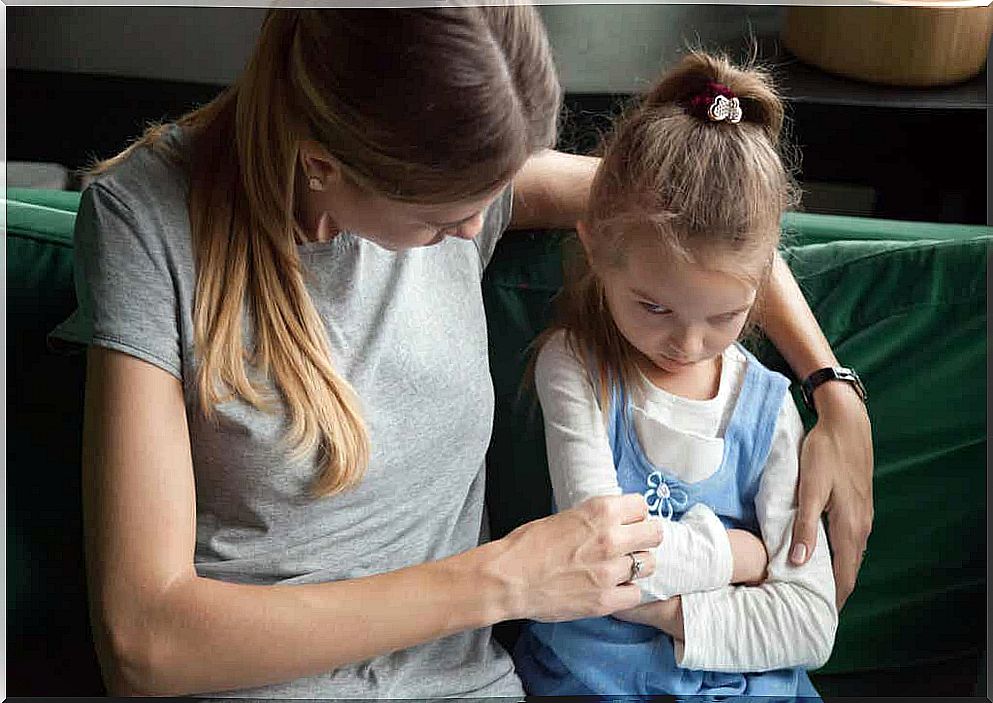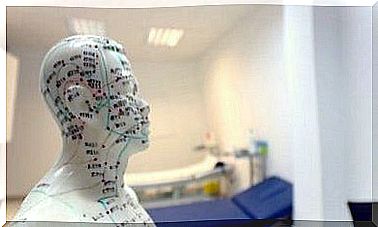What Are Autistic Spectrum Disorder Parents Like?

Parents with autism spectrum disorder are invisible in our society. When we look for studies and research, we always start from the “neurotypical parents who take care of children with autism” scheme. Somehow, we are neglecting a reality that is more common than we think and that has its own characteristics that deserve to be known.
Statistical data warns that more than 1% of the population may be on the autistic spectrum. Something like this highlights an obvious fact: there are many people who have not yet received a diagnosis. The reason for this last point is explained simply. We are facing a neurobiological condition with a wide manifestation of characteristics and needs (not all of which are so obvious).
There are people with Asperger syndrome, others with Rett syndrome, there are patients with severe communication limitations, highly dependent people, and those who simply don’t suspect that they are on this spectrum. There are men and women with highly functional autism who do not relate their limitations, problems and difficulties with this neurobiological reality.
They formed families and have some peculiarities in this formation that are interesting to describe. Let’s analyze.

What characterizes parents with autism spectrum disorder?
Being Asperger’s or being on the autism spectrum doesn’t make someone a bad parent by any means. Simon Baron-Cohen, director of Cambridge University’s Center for Autism Research (UK), says it clearly: something that is finally being demonstrated in the 21st century is that people with autism are able to participate in all aspects of life, including fatherhood and motherhood.
We talk about this last point due to a remarkable fact. In 1988, Dr. Edward Ritvo, a psychiatrist at the University of California, submitted an article to the Journal of Autism and Developmental Disorders entitled Eleven Autistic Parents. Publication was denied up to ten times before being published. According to what he was told, it was impossible for people with autism to have a family.
In the end, the doctor Ritvo had to change the title so that his work was accepted by the scientific community ( Eleven “possible” autistic parents). Until very recently, this condition was considered a serious and disabling disorder. Fortunately, this perspective has already changed, but we need more advances, more achievements…
We have a lot of research on children with autism, but not on adults with ASD. However, they do exist and are part of our society. They do their jobs, they have their dreams and goals, they build families, they have a partner and, of course, they enjoy raising their children.
But what are parents with autism spectrum disorder like? We’ll talk about that below.
Mothers with autism are more likely to suffer from pre- and postpartum depression
As we pointed out, we have few studies on adults with autism spectrum disorder. However, one of the figures that goes most deeply into this area is Dr. Simon Baron-Cohen, mentioned earlier. It was he who organized, through social networks, an important data collection project on people who, diagnosed with ASD, were fathers or mothers all over the world.
One thing that can be observed is that the mothers with autism are more likely to suffer from pre and postpartum depression. Many of them feel overwhelmed and, above all, alone. The most common is a lack of support to manage the accumulation of emotions they experience.
If diagnosed, they suffer prejudice and pressure from the surroundings
Another characteristic of parents with autism spectrum disorder is peer pressure and stigma. If they have a diagnosis, it is common for family members, friends or co-workers to question whether they can take on the responsibility of being a parent.
Something like this is lived with a lot of suffering.
The problem of multitasking when caring for a child
Multitasking is itself a challenge for any nuclear or single parent family. However, mothers and fathers with autism spectrum disorder face a more complex challenge.
Their minds always tend to focus deeply on just one aspect. Having to be available when the baby cries, knowing if it needs to be changed, taking care of household chores, etc. can be very problematic. Therefore, it is common for people to make lists to organize their daily tasks.
Overstimulation, a recurrent problem
The crying of babies, the crying of older children when they play, the mess, the television, video games, etc., make many people on the autism spectrum feel overwhelmed. Overstimulation (sounds, lights, etc.) is a very stressful overload.
The problem of communication with the child’s social environment
Something illustrative was found in Dr. Baron-Cohen’s research. More than 60% of mothers and fathers with autism spectrum disorder have difficulty communicating with teachers, doctors and other professionals related to their children. All of this is exhausting and very problematic.

The problem of not being able to respond to all of a child’s emotional needs
A parent with this condition loves their children with the same devotion as anyone else. They take care of them and look for the best for their children like everyone else. However, they are aware that there are limitations and dimensions that they do not know how to deal with.
They suffer, for example, from not being able to respond to their children when they have a tantrum. It’s harder for them to provide support when they’re frustrated, angry, or sad. Educating emotions is a challenge for anyone, but even more so for the person with ASD, being especially problematic when the child reaches adolescence.
On the other hand, it is also important to highlight a remarkable fact that was observed in this online survey. It is common for parents (men) with autism spectrum disorder to present – on average – an authoritarian parenting style.
To conclude, we need two things. The first is more research on what autism looks like in adulthood. The second is obvious: it is advisable to develop care and support services for parents with this condition. In this way, they would enjoy this process much more and feel more competent in the adventure of parenting and education.









